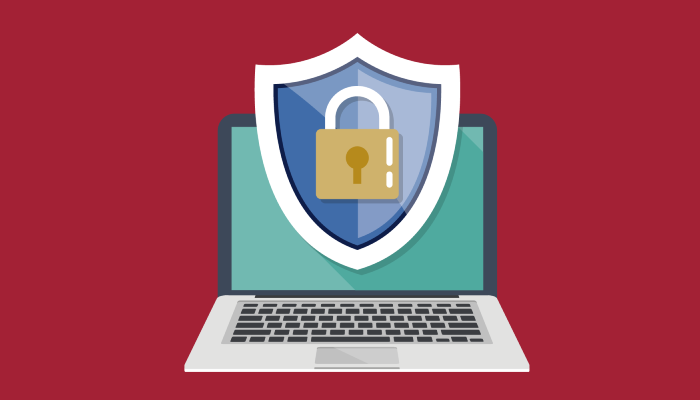
In today’s digital age, protecting your devices from online threats like viruses, malware, and ransomware is more important than ever. With the growing number of cyberattacks targeting individuals and businesses alike, it’s essential to have antivirus software in place to safeguard your personal information and maintain your privacy.
When it comes to choosing antivirus protection, many users opt for free antivirus software, often assuming it’s enough to keep their devices safe. But is free antivirus really enough? Let’s break down what you need to know to make an informed decision about your digital security.
What Does Free Antivirus Software Offer?
Free antivirus programs typically provide basic protection against common threats, such as viruses, trojans, and worms. These programs often feature the following:
- Real-time scanning: Detects malware and viruses as they try to enter your system.
- Virus database updates: The software updates its database regularly to recognize new threats.
- Basic firewall protection: Some free options offer limited firewall features to block unauthorized access.
While free antivirus software can be effective for general protection, it’s important to understand its limitations and the trade-offs that come with using a free product.
The Limitations of Free Antivirus
- Limited Features
Free antivirus programs often come with fewer features than their paid counterparts. For example, many free versions lack advanced protections, such as:
- Ransomware protection: Free antivirus may not include tools that specifically defend against ransomware attacks, which have become more prevalent in recent years.
- Privacy protection: Paid antivirus suites often offer privacy tools like VPNs, secure browsing, and identity theft protection, which are usually not included in free versions.
- Real-time protection for all devices: Free antivirus may only protect one device (such as a computer) and may not offer protection for smartphones, tablets, or multiple devices.
- Frequent Ads and Upsells
One of the common downsides of free antivirus software is that it often comes with annoying pop-up ads or constant reminders to upgrade to the premium version. These interruptions can be frustrating and may even distract from your overall experience while using the software.
- Limited Customer Support
Free antivirus programs typically offer minimal or no customer support. In the event that you encounter an issue or need assistance with your antivirus, you may find yourself unable to get help quickly. Paid antivirus software, on the other hand, often provides 24/7 customer support, which can be critical if you face a malware emergency.
- Slower Response to Emerging Threats
Free antivirus programs may not update as frequently or as quickly as paid versions. This means they could be slower to detect and respond to new and emerging threats, leaving your device vulnerable for a longer period.
When Free Antivirus Might Be Enough
While free antivirus software may have its limitations, it can still be a good option for certain users, especially those who:
- Use their devices cautiously: If you mostly browse trusted websites, avoid downloading suspicious files, and don’t open unfamiliar email attachments, a free antivirus may offer adequate protection.
- Have older devices: If you have an older computer with limited resources, the lightweight nature of many free antivirus programs may be a better fit than a more resource-heavy paid option.
- Only need basic protection: If you are looking for basic, no-frills protection from common viruses and malware, a free antivirus might do the job.
Why Paid Antivirus Software May Be Worth It
If you’re looking for more comprehensive protection and peace of mind, investing in paid antivirus software could be the better choice. Here’s why:
- Advanced Protection Against Modern Threats
Paid antivirus solutions often come with advanced features like ransomware protection, email security, privacy tools (VPN, identity theft protection), and more robust real-time scanning. These extra layers of security help protect against the growing complexity of cyber threats.
- Cross-Platform Protection
Paid antivirus software often includes protection for multiple devices, including your smartphone, tablet, and even smart home devices. Many services offer protection for up to 5 or more devices, ensuring your entire digital ecosystem is covered.
- Better Customer Support
Premium antivirus programs offer around-the-clock customer support, so you can get help when needed. Whether you’re dealing with a virus outbreak or need assistance with a specific feature, paid software often provides a more comprehensive support experience.
- Frequent Updates and Faster Detection
Paid antivirus programs often include more frequent updates and faster detection of emerging threats. This means they can respond quicker to new malware strains, ensuring your device stays protected even when new threats appear.
Conclusion: Is Free Antivirus Enough?
The answer depends on your specific needs and how you use your devices. If you’re looking for basic protection and don’t mind dealing with occasional ads and limited features, a free antivirus program might be sufficient for your needs. However, if you want the highest level of protection, enhanced security features, and reliable customer support, investing in a paid antivirus solution is well worth the cost.
Ultimately, your online security is an investment in your privacy and safety. Whether you opt for a free or paid antivirus program, make sure you’re taking the necessary steps to protect your devices and personal data from the increasing number of digital threats.
